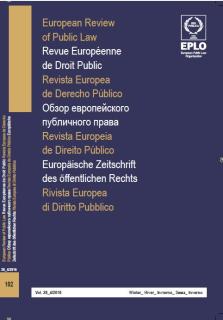
Constitutional Law / Droit constitutionnel
2015
Poland / Pologne
Professor at the Jagiellonian University
In 2015, the political landscape was wrought with change following important elections and a major constitutional crisis. Presidential and parliamentary elections were held, with the party Law and Justice coming to power after eight years in the opposition. A nation-wide referendum was also held on the questions of single-seat constituencies, public financing of political parties, and fiscal law. New legislation on social dialogue between government, trade unions, and employers was enacted. In addition, acts modifying the electoral code, the definition of the assembly, the rules on associations, the organization of ordinary courts, the petition procedure and the Sejm were adopted. The most important judgments of the Constitutional Court concern various issues of fundamental rights protection including the pension system reform, the conscience clause for physicians and criminalization of insult to public officials. Finally, the most serious constitutional crisis in Poland after 1989 and its subsequent constitutional developments are discussed.
En 2015, le paysage politique a été marqué par des changements faisant suite à des élections importantes et une crise constitutionnelle majeure. Des élections présidentielles et parlementaires ont eu lieu, avec le parti Loi et Justice arrivé au pouvoir après huit années dans l’opposition. Un référendum à l’échelle nationale a été tenu sur les questions des circonscriptions uninominales, du financement public des partis politiques, et du droit fiscal. Une nouvelle législation sur le dialogue social entre le gouvernement, les syndicats et les employeurs a été mise en place. De plus, des lois modifiant le code électoral, la définition de l’assemblée, les règles sur les associations, l’organisation des tribunaux ordinaires, la procédure de pétition et le Sejm ont été adoptées. Les arrêts les plus importants de la Cour constitutionnelle concernent diverses questions de la protection des droits fondamentaux et en particulier la réforme du régime des retraites, la clause de conscience pour les médecins et la pénalisation de l’insulte contre les fonctionnaires. Enfin, la crise constitutionnelle la plus grave en Pologne depuis 1989 et les développements constitutionnels subséquents, sont discutés.





















